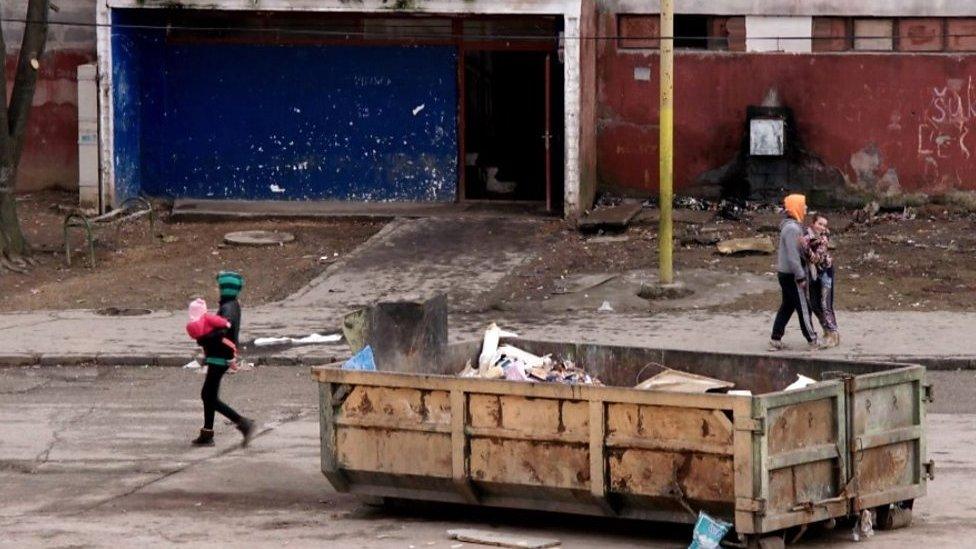Women trafficked to Glasgow for sham marriages
- Published
What happens when people fall victim to human trafficking?
Eastern European crime gangs are repeatedly forcing trafficked women into sexual exploitation and sham marriages, a BBC investigation found.
The programme, Humans for Sale, found one Slovakian girl who had been trafficked to Glasgow three times.
Many of the women were forced into sham marriages with men, mainly from Pakistan, who were seeking to apply for residency in the UK.
The women, who are EU citizens, are lured to the UK with false promises.
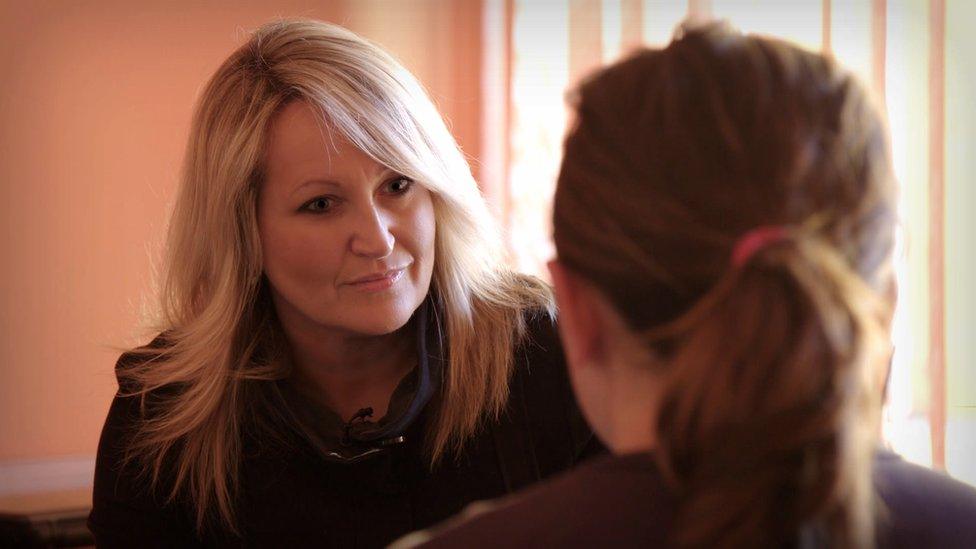
Sam Poling with victim Anna
According to Angelika Molnar, who runs Europol's human trafficking unit, the victims were encouraged to leave poverty and deprivation in countries such as Romania and Slovakia with the prospect of a well-paid job in Scotland.
"It's only upon arrival that they are told there is no work available and they have to be engaged in marriages with Pakistani men," she said.
Ms Molnar said the potential grooms wanted to stay in Scotland but needed marriage to an EU citizen to be able to apply for residency.
"After the marriage, the women are kept under control by the traffickers and are exploited as domestic service by the husband but also raped and sexually exploited by fellow nationals of the traffickers," she said.
Ms Molnar said people were now the second most lucrative criminal commodity after drugs, with labour and sexual exploitation the most common reasons for trafficking to Scotland.
Scottish human trafficking expert Jim Laird told the BBC there was a "clear link" between Eastern European crime gangs and Asian organised crime in Glasgow.

Undercover investigation
The BBC sent investigative journalist Sam Poling undercover to expose the ruthless tactics used in the supply chain.
She travelled across Eastern Europe to track down victims sold to Glasgow gangs for sex.
Woman tells why she might be tempted by a trafficker
In Slovakia she tried to track down some of the victims who had previously been trafficked to Glasgow before being rescued.
When she arrived at one girl's house to interview her, she discovered the girl was missing.
Her parents said they believed she had been trafficked back to Glasgow, leaving her baby daughter behind.
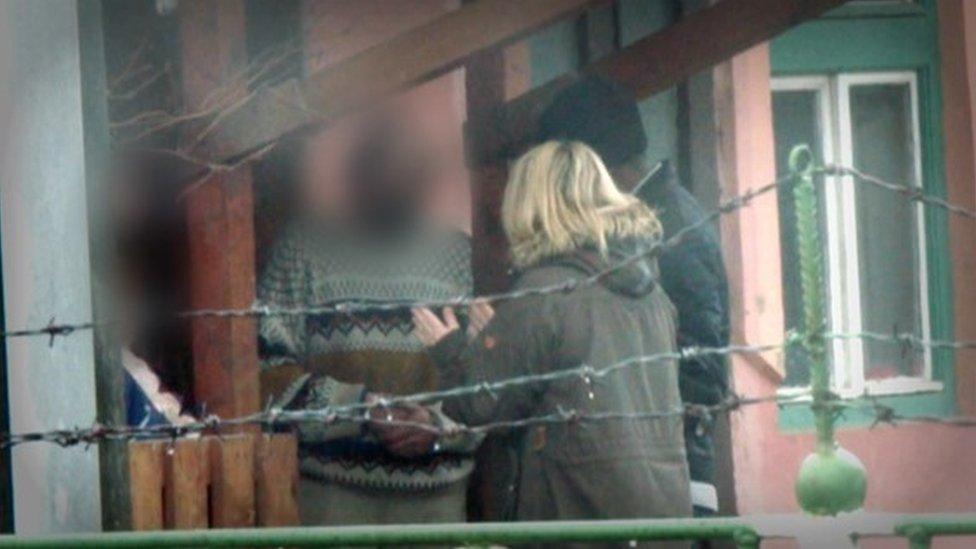
In Slovakia, the parents of one girl believed she had been trafficked back to Glasgow, leaving her baby behind
At other houses, the BBC team discovered three other girls had also been trafficked back to Scotland.
They filmed one house in eastern Slovakia which was set up as a "transit house" by a man who bought girls and kept them there for a few days before transporting them to Glasgow for sham marriages.
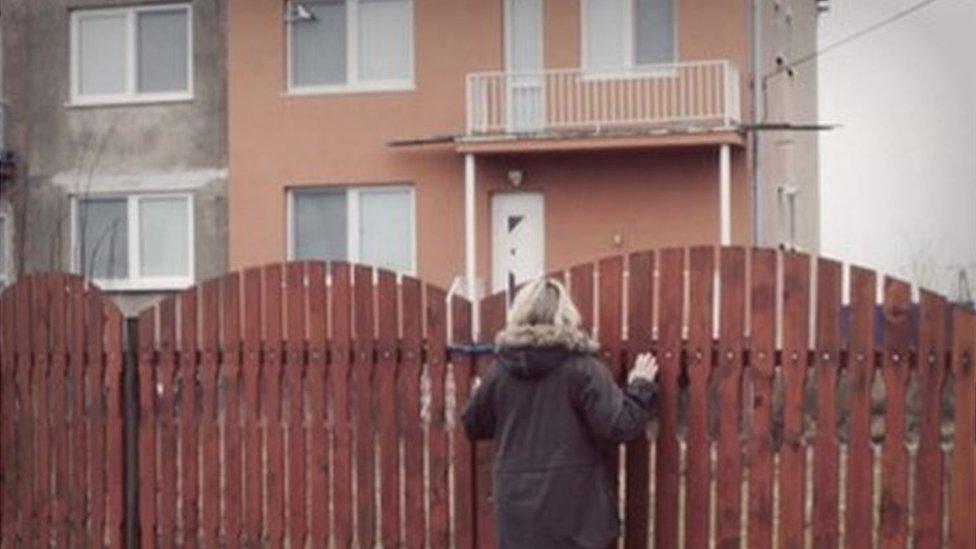
Sam Poling at a "transit house" in eastern Slovakia
The house was surrounded by a high padlocked fence and had cameras trained on the doors and windows.
Yves Ogou, who describes himself as a social worker, works closely with authorities in both Slovakia and Scotland to help rescue and support victims, particularly those sold to gangs in Glasgow for sham marriages.
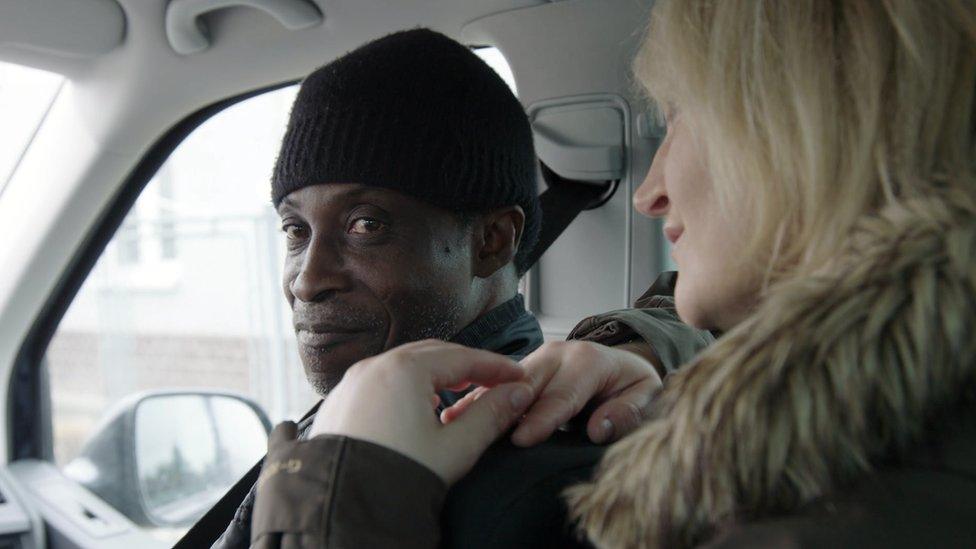
Yves Ogou showed Sam Poling a "transit house" in Slovakia
He said of the transit house: "Some girls, they have no identity card, they have no passport.
"Here, within 24 hours we can fix normal identity cards or passports. You pay for that and you have your passport.
"In those two days the traffickers change the girls to make them look like really pretty girls because most of those girls are from Roma settlements.
"There's no water, it's a really difficult place to live. They have to look like normal human beings."
Yves said Glasgow was specifically targeted by Slovakian traffickers because of historical links with Roma communities and their association with third-country nationals who wanted UK residency.
"Those people used to go to Glasgow because the first Roma community from here tried to move to Glasgow, Manchester, Bradford and so on," he said.
"That's their first contact and the traffickers, they have friends, they are friends to people from western Africa, people from Afghanistan, Pakistan, India and so on."

Tracking down sham marriages
To try to get evidence of sham marriages in Scotland, Sam Poling examined marriage records to look for "red flags".
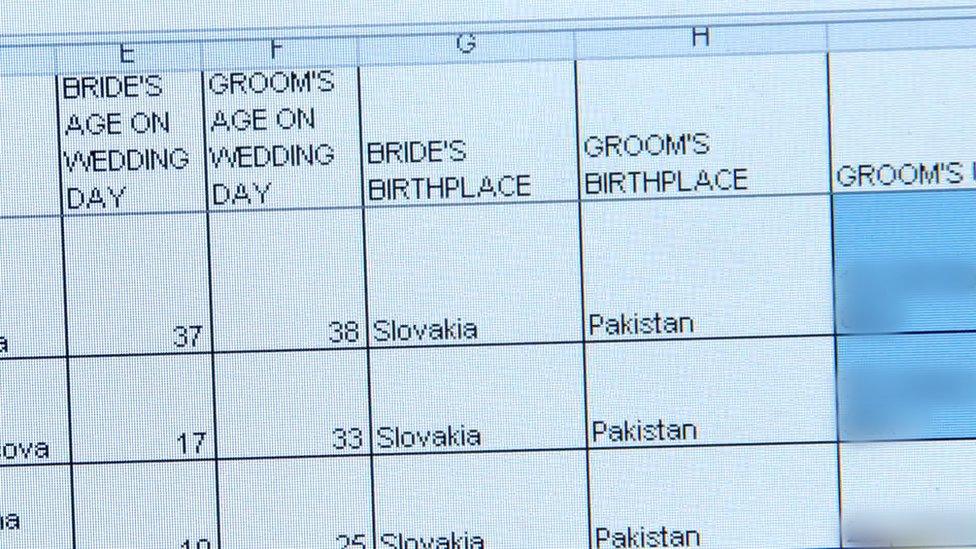
Marriage records showed Slovakian women getting married to Pakistani men
The suspicious markers include young Eastern European brides, older Asian grooms and the same addresses being used for multiple marriages, yet little sign of them living there.
She also looked at how many got divorced after the five-year-mark, the length of time someone has to have residency before being granted a UK passport.
The programme team found dozens of such marriages in Scotland.
Seventy of them were registered in Glasgow and a third in Govanhill.
And 40% of those who married there just over five years ago - the cut-off for the passport - are now divorced.
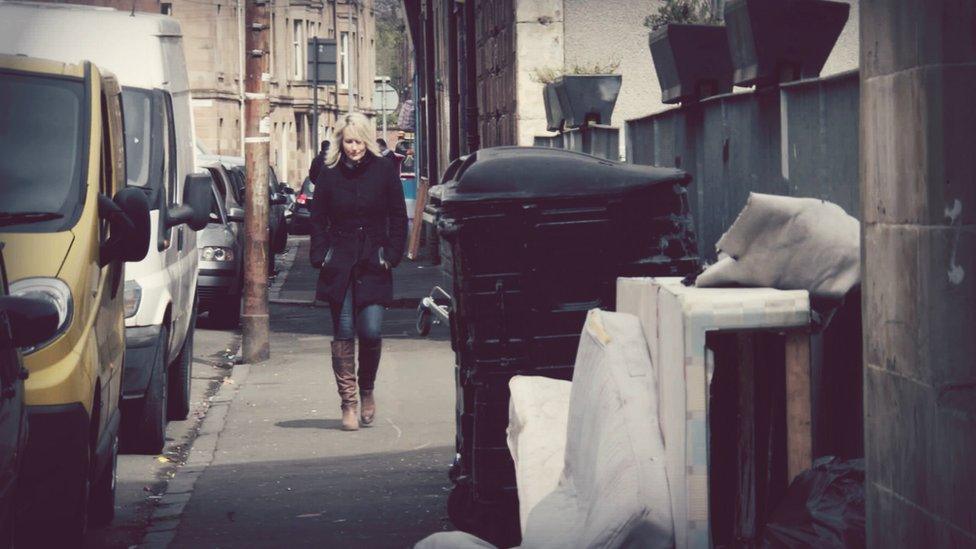
Sam Poling in Govanhill, an area of Glasgow where many of the sham marriages occur
One address - Westmorland Street in Govanhill - had more than a dozen links to marriages between men from Pakistan and young Eastern European brides in recent years.
Witnesses of the weddings were also registered there.
Yet there was no trace of any of the couples living at any of the properties.
Europol's Angelika Molnar says the agency is catching up with human traffickers
Jim Laird, one of Scotland's leading experts on human trafficking, said: "There's a high number of victims from the Govanhill area, and that's because there's a clear link between Eastern European crime gangs, who have human trafficking as one of the things they do, and links with organised Asian crime gangs in Glasgow.
"So the Eastern European crime gangs will provide the victims and the Asian crime gangs here will provide the accommodation which is why there is quite a lot of it in Govanhill."
Adrien says he is also selling his wife's kidney
There were 150 people recorded as official victims of trafficking in Scotland last year, a figure Jim Laird said did not reflect the reality of the trade.
He said: "The victims run into millions.
"In Scotland alone you'd be talking thousands.
"There's no prosecution because people are too frightened to be witnesses in trials, they're worried about their own personal safety, but they're also worried about their family's safety back at home."
He added: "Some of them quite frankly are embarrassed because they've been conned.
"They've been sold a dream, believed it and came here, and when they found out what has happened to them, they just want to disappear as quietly as possible and go back to their own country."
Humans for Sale is on BBC One Scotland at 21:00 on Wednesday 10 May
- Published10 May 2017
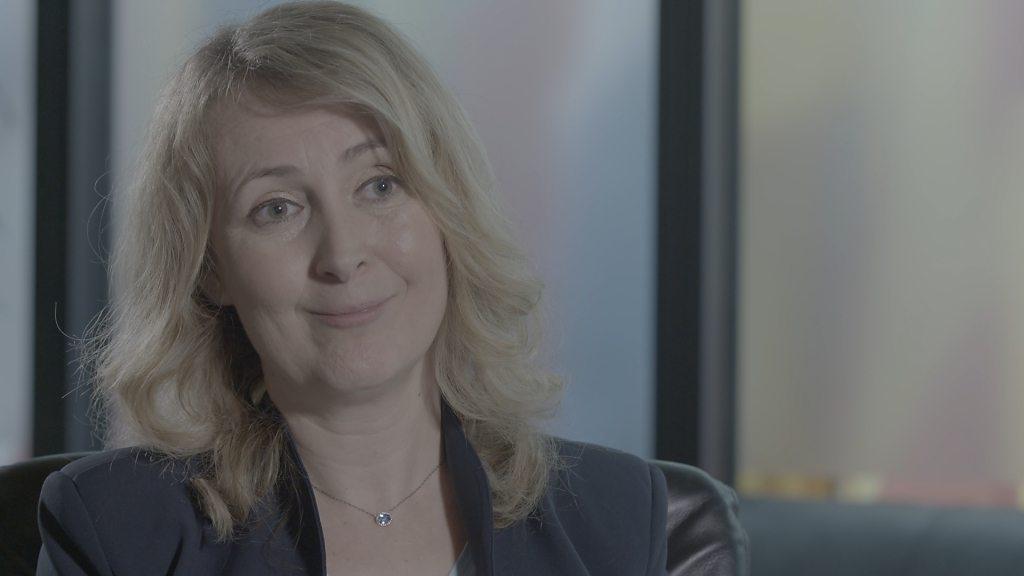
- Published10 May 2017
